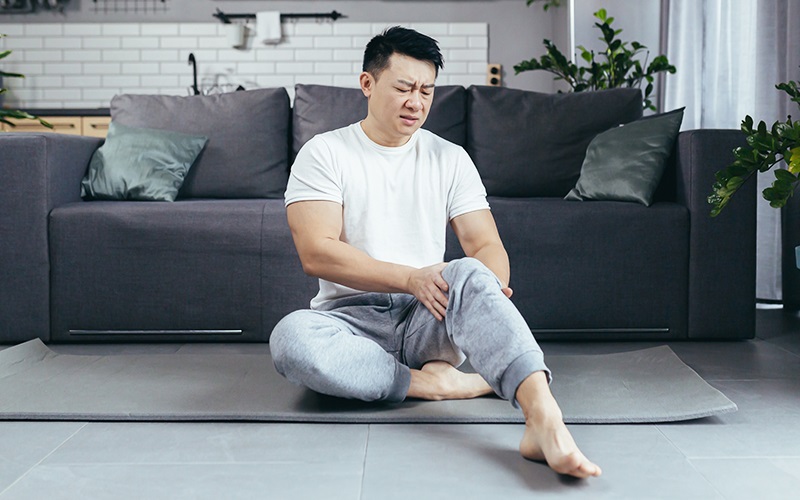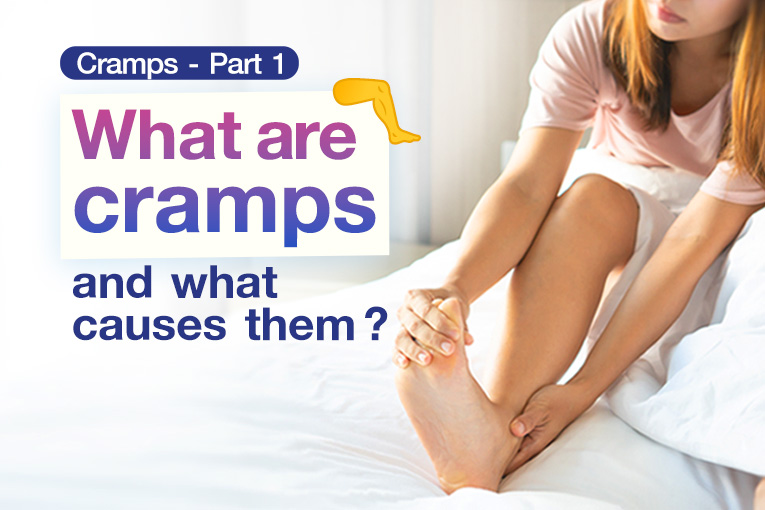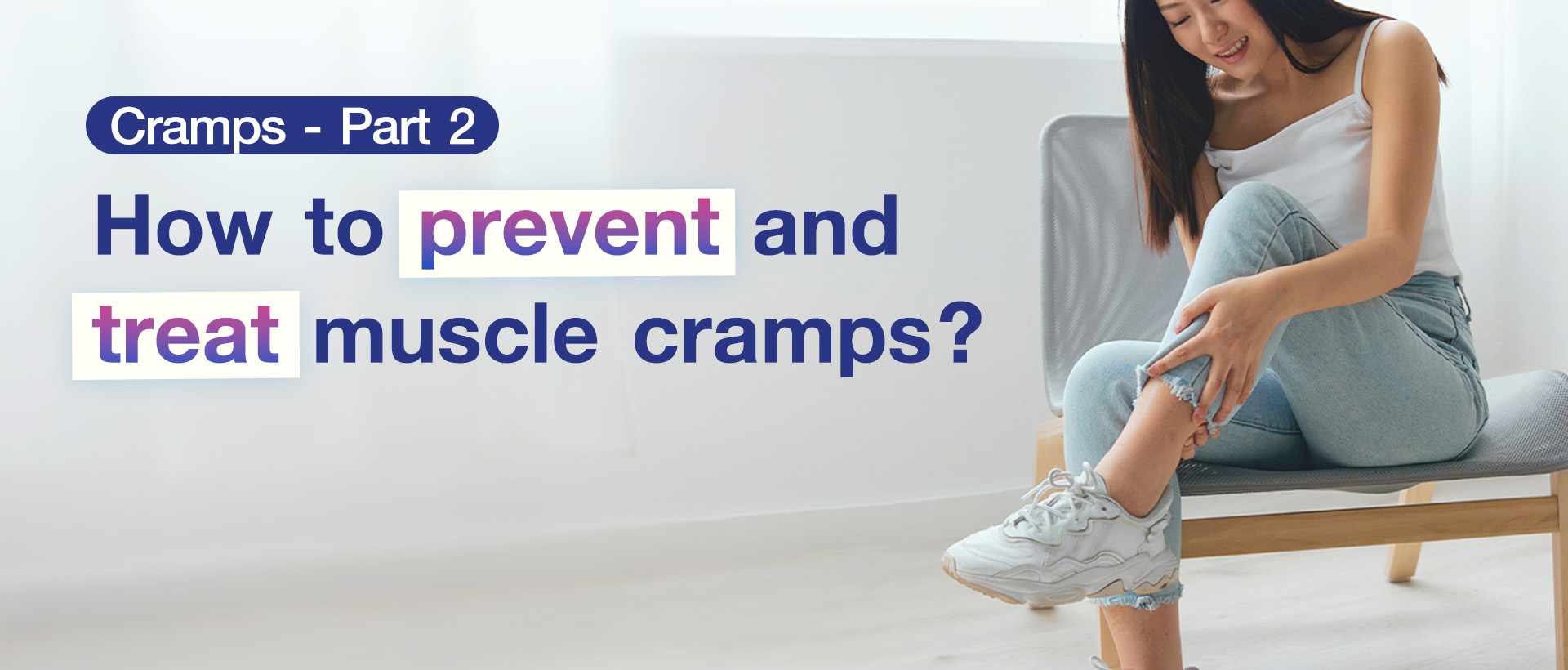Muscle spasms are difficult to prevent, as they can be unpredictable and can happen at anytime. However, there are some methods that might be helpful to reduce and treat cramps from occurring.
What can help prevent cramps from occurring?
Exercise
• Firstly, avoid or limit the exercises that strain your muscles and cause cramps.
• Warm up and cool down thoroughly whenever you exercise or play sport.
• Stretch your muscles regularly.
• Avoid exercising in hot weather as this can increase the risk of dehydration. Although dehydration alone is not associated with a cramp it can contribute to premature muscle fatigue increasing the risk of cramping.
• Try some mild exercise right before bed to prevent leg cramps at night
• Increase your level of physical fitness and strengthen your muscles with regular weight bearing exercises.
• Stretch your muscles before you go to sleep. When you sleep, keep the sheets and blankets loose around your legs.
Nutrition
• Avoid exercise right after eating.
• Reduce caffeine intake, as it is a diuretic, robbing your body of water and dehydration which can contribute to cramps
• Hydrate yourself with fluids to avoid dehydration, which can contribute to cramps. Your body loses more water when physically active, so increase your liquid intake when you exercise.
• Make sure your diet is nutritionally adequate and include plenty of fruits and vegetables. Increase your calcium and potassium intake naturally by drinking milk, orange juice and eating bananas. Eat foods rich in magnesium, especially leafy greens.
Fuel up with carbohydrates leading up to exercise
As carbohydrate depletion can lead to muscle cramps. They are the primary fuel used during exercise, stored as glycogen within the muscles and liver. Low or exhausted levels of carbohydrates can directly cause muscle cramping. With low levels of fuel, relaxing is impaired, and cramping occurs. Ideally consume carbohydrates at least three to four hours before competition. Consider adding carbohydrates to your diet such as bread, potatoes, beans, pasta.
Other preventative measures:
• Wear socks at night if you experience leg cramps.
• A regular massage may help to reduce muscle tension.
• Wear properly fitted shoes and avoid high heels.
• Keep your weight at a healthy range.
• To prevent leg cramps, use pillows to keep your toes pointed upwards if you sleep on your back. If you sleep on your chest, hang your feet over the end of the bed.
How to stop muscle cramps
Most muscle cramps resolve after a few seconds or minutes. When they strike, here are some steps you can take to try to put a stop to it:
• Apply a hot or cold compress to your sore muscles at the first sign to ease the pain. You can use a heating pad, cold cloth or ice. Apply heat to tense and tight muscles, or cold to sore and tender muscles.
• Stretching the affected muscle can also alleviate the pain of muscle cramps. For example, if your calf is cramping, you could pull your foot upward with your hand to stretch the calf muscle.
• Massage the affected area with your hands or a massage roller.
• Stand up and walk around.
• If pain doesn’t improve, try taking an over-the-counter, anti-inflammatory medication, such as ibuprofen.
• Controlling the underlying cause of muscle cramps can improve your symptoms and ease spasms. For example, your doctor may consider if dietary intake is inadequate and you need additional support.
Who to consult for advice and treatment for muscle cramps
Your doctor or physiotherapist can offer further advice. For example, if you are unsure how to stretch leg muscles, your physiotherapist can advise on this. See your doctor if you experience regular muscle cramping or if cramps last longer than a few minutes. Blackmores Health Hub contains a library of related articles as well as an online Naturopath service should you require any additional advice.
How to Reduce Leg Cramps at Night (Nocturnal leg cramps)
The exact cause of nocturnal leg cramps is unknown but there are ways to reduce the chance of experiencing them:
• Hydration: Staying consistently hydrated throughout the day may help reduce the frequency of muscle cramps, since dehydration can cause cramps.
• Stretching: Doing some stretching or yoga before bed may help reduce both the frequency and intensity of nocturnal leg cramps.
• Baths: An epsom salt bath contains magnesium, which may help relieve leg cramping.
• Massage: Massaging your calves or feet before bed may help reduce cramping during the night by relaxing the muscles in your legs.
• Heel Walking: Walking on heels may help reduce nocturnal leg cramping if you wake up in the middle of the night with a cramp in your calf, although research has found it is not as effective as stretching during a leg cramp.

















































